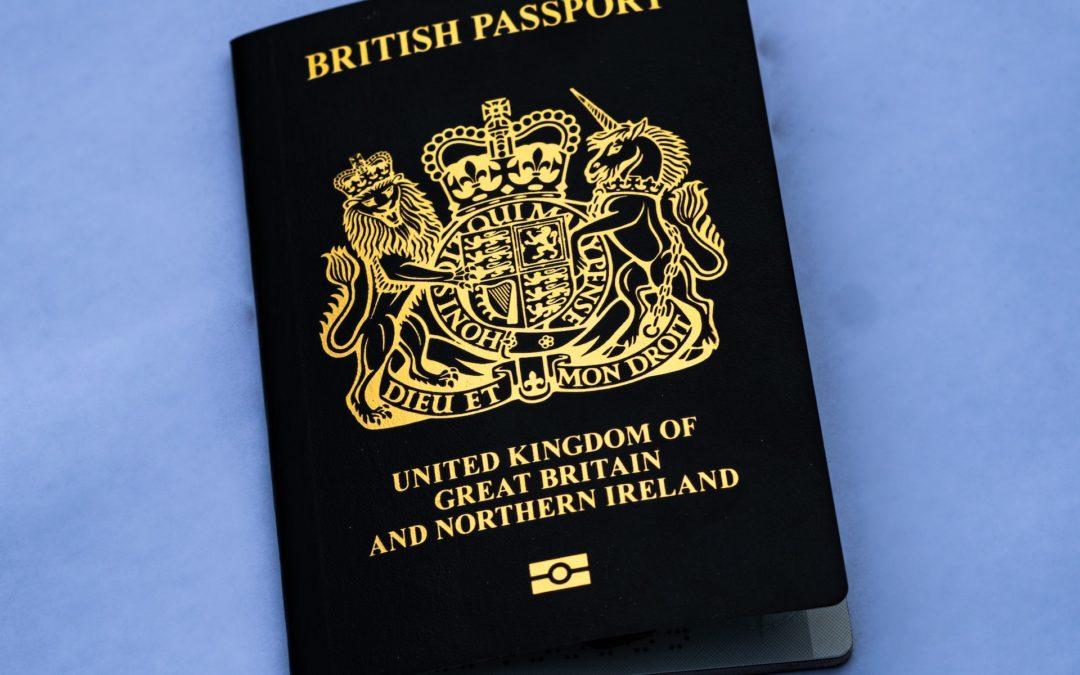Citizenship in the United Kingdom, commonly known as British citizenship or nationality, is a significant legal status that endows individuals with a spectrum of rights and responsibilities. The process of becoming a British citizen is transformative, whether achieved through birthright, descent, naturalization, or marriage to a British citizen. Each pathway has its unique requirements and corresponding application procedures.
In this article, we will explore the diverse routes to acquiring British citizenship, elucidate the rights bestowed upon individuals, outline the associated responsibilities, and detail the requisite documentation and qualifications for each process. Furthermore, we will delve into the broader significance of British citizenship in the lives of individuals and within the societal landscape.
Ways To Get Citizenship of the U.K.
- Birthright Citizenship in the UK – If you are born in the United Kingdom to at least one parent who is a British citizen, settled in the UK, or a member of the armed forces, you are typically considered a British citizen by birth. This is often referred to as “jus soli” (right of the soil). It’s a straightforward way to obtain citizenship, as it’s automatic, but the parent’s immigration status at the time of your birth is crucial.
- Citizenship by Descent – If you were born outside the UK to British citizen parents, you may be eligible for British citizenship by descent. However, this route has specific requirements and limitations. For instance, the citizenship status of your parents and the generation you are in can affect eligibility.
- Naturalization – Naturalization is the process of applying for and obtaining British citizenship as an adult foreign national. To qualify, you generally need to meet several criteria, including a minimum residency period, which is typically five years, and a more extended period if you are married to or in a civil partnership with a British citizen. You must also demonstrate your commitment to the UK through various means, such as passing the “Life in the UK” test, proving good character, and meeting English language requirements.
- Marriage or Civil Partnership – If you are in a genuine and subsisting marriage or civil partnership with a British citizen, you may be eligible for citizenship after a period of residence in the UK. Typically, this requires living in the UK for at least three years under this specific immigration category. Additionally, you must meet other criteria to establish the authenticity of your relationship.
Other Ways to Be Eligible to Apply for the Citizenship of the UK:
- Having a British parent.
- Possessing another form of British nationality.
- Being the offspring of a parent with British overseas territories citizenship.
- Being stateless.
- Having previously renounced your citizenship.
- Being subject to other special circumstances.
- Being a direct descendant of a Chagossian (someone born in the British Indian Ocean Territory).
Rights and Responsibilities as a British Citizen
Regarding the significance and implications of British citizenship, it’s a crucial legal status that carries both rights and responsibilities:
Rights:
- Right to Live and Work – As a British citizen, you have the unrestricted right to live and work in the UK. You are not subject to immigration restrictions.
- Access to Services – You have access to the National Health Service (NHS) and can access state-funded education.
- Vote – British citizens can participate in the democratic process by voting in elections, which is a fundamental aspect of a democratic society.
- Protection – You receive protection and support from the UK government and its embassies when abroad.
Responsibilities:
- Obeying the Law – British citizens are expected to follow the laws of the UK, and there are consequences for breaking them.
- Paying Taxes – You are required to pay taxes, including income tax and council tax.
- Jury Service – As a citizen, you may be called for jury service, which is a civic duty.
- Defending the Country – While not commonly invoked, British citizens can be called upon for military service if the need arises.
Naturalization As a British/UK Citizen
The naturalization process for British citizenship, often referred to as “naturalization as a British citizen,” is a significant and complex step that allows foreign nationals to become full citizens of the United Kingdom. To apply for naturalization, you will need to provide specific documents and meet certain requirements. Here’s a more detailed explanation:
- Application Form – You will need to complete the appropriate application form, which is usually Form AN (Application for Naturalization as a British Citizen). This form is available on the official government website.
- Passport – A valid passport is a necessary document to include with your application. Ensure your passport is current and will not expire during the application process.
- Biometric Residence Permit (BRP) – If you have a BRP, you should include it as evidence of your immigration status in the UK.
- Proof of Residence – You will need to provide evidence of your residence in the UK. This can include documents like utility bills, tenancy agreements, or other official records that demonstrate your address history in the UK.
- Life in the UK Test Certificate – One of the key requirements for naturalization is passing the Life in the UK test. You must include the certificate as evidence of your knowledge of British culture, history, and the legal system.
- English Language Proficiency – If your native language is not English, you may be required to provide certificates from approved language tests, such as IELTS or ESOL, to demonstrate your English language proficiency.
- Criminal Record Certificate -You may need to provide a criminal record certificate from any country where you have lived for a specific period. This is to establish that you have a good character.
- Payment Receipt – Include a copy of the receipt or proof of payment for the naturalization application fee. The fee amount can change over time, so ensure you verify the current fee.
- References – You will be required to provide references from people who can confirm your identity, character, and that you are of good standing in the community. Typically, this involves two referees who have known you for a specific period.
- Declarations and Additional Documents – You will need to complete various declarations on the application form, including declarations about your immigration history and good character. Depending on your specific circumstances, you may also need to provide additional documents to support your application.
The naturalization process is comprehensive and may require careful preparation to ensure that all requirements are met. It’s advisable to consult the official government website or seek legal advice when applying for naturalization, as the requirements and necessary documents may change over time.
As we can see, British citizenship is a vital legal status that comes with both privileges and duties. Whether you were born in the UK, have British ancestry, or have gone through the naturalization process, becoming a UK citizen is a significant step. It means you can live and work in the UK freely, participate in elections, and enjoy access to essential services like healthcare and education. However, it also means following the law, paying taxes, and being a responsible member of the UK community. Understanding the various paths and requirements for British citizenship is key to making a well-informed decision that can profoundly impact your life in the UK.
Read also: 20 Most Important Diplomatic Skills
Disclaimer:
The information provided in this article, “UK Citizenship: A Comprehensive Guide,” is intended for general informational purposes only. The content is based on research and commonly available resources as of the last update and may not reflect the most current legal or procedural developments.
BitGlint, its authors, and contributors do not provide legal advice, and the content should not be considered a substitute for professional consultation. Laws and regulations regarding UK citizenship are subject to change, and individuals are strongly advised to seek advice from qualified professionals or official government sources (for example from here: www.gov.uk/british-citizenship) when making decisions related to citizenship applications or related matters.
BitGlint does not endorse or assume responsibility for the accuracy, completeness, or reliability of the information presented in this guide. Users are encouraged to verify information independently and consult relevant authorities for the latest updates and personalized guidance.
By accessing and using this guide, readers acknowledge and agree to the limitations and disclaimers outlined herein. BitGlint and its contributors disclaim any liability for actions taken or not taken based on the content of this article.
The Most Popular on BitGlint

40 Social Dilemma Examples in the World & Real Life
Social dilemmas are everywhere. They shape the choices we make at work, in our communities, and even on a global...

30 Favor Examples & Definition
Doing a favor means helping someone without expecting anything in return. It’s an act of kindness that can strengthen...

30 Naivety Examples & Definition
Naivety is something most people experience at some point in their lives. It often starts in childhood, but for some,...

20 Chronology Examples & Meaning
Chronology is something we use more than we realize. It shows up in conversations, in how we remember the past, and in...

30 Wishful Thinking Examples & Meaning
Wishful thinking is something we all do at some point. You hope things will turn out fine—even if there’s no real...

20 Examples of Gravity & What Gravity Really Is
Gravity is one of the most important forces in the universe, but many people don’t fully understand what it really is...

20 Examples of Secondary Consumers in the Food Chain
Secondary consumers are animals that eat other animals—usually herbivores that feed on plants. They’re an important...
Get Inspired with BitGlint

